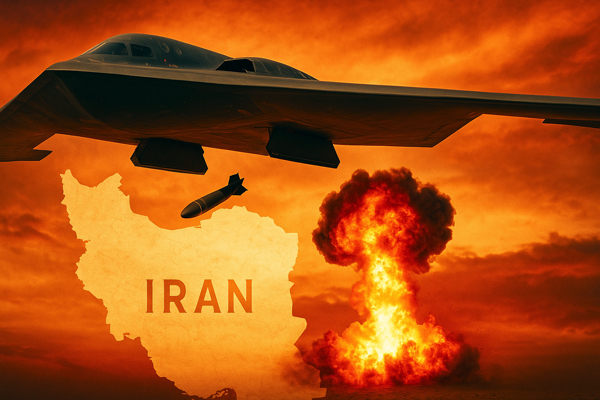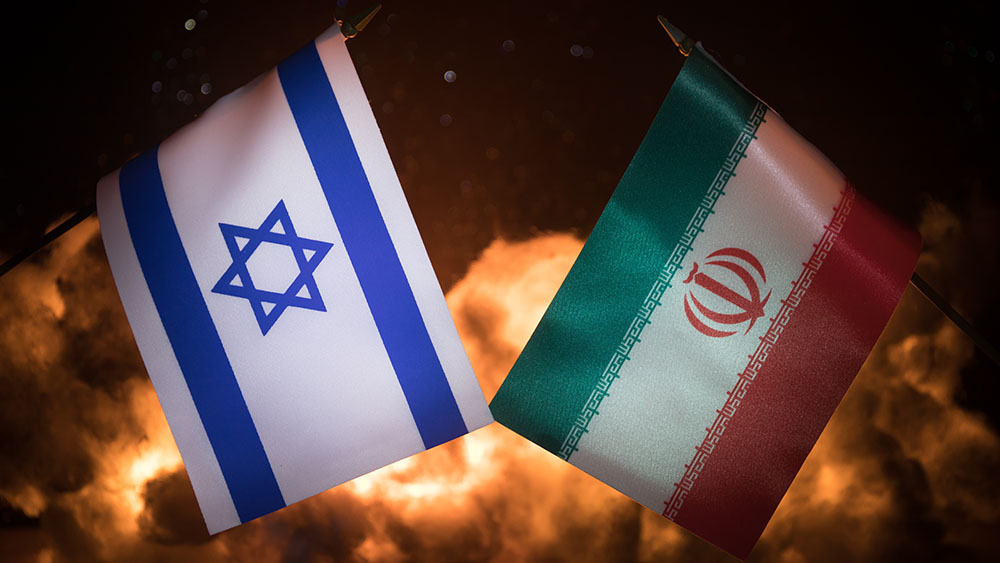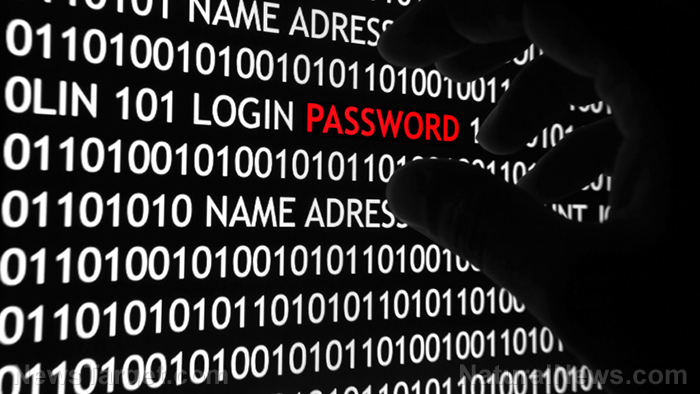 Parler
Parler Gab
Gab
- Iran has imposed a near-total internet blackout after Israeli airstrikes, cutting connectivity to just 3% of normal levels, forcing citizens onto a censored state-controlled network.
- Authorities claim the shutdown is for national security, but critics say it’s to suppress dissent and control information amid escalating conflict.
- Global platforms like WhatsApp and Instagram are blocked, pushing Iranians toward monitored domestic apps, raising surveillance and privacy concerns.
- The blackout mirrors past crackdowns during protests, enabling arrests and executions while leaving civilians unable to coordinate evacuations or access emergency services.
- Elon Musk activated Starlink to help, but Iran banned it, prioritizing control over safety as the regime fears internal unrest more than external threats.
A calculated crackdown on communication
The Iranian government claims the blackout is necessary to prevent "enemy abuse" of the internet, but critics argue it is a blatant attempt to stifle dissent and control the narrative amid escalating conflict. NetBlocks, a global internet monitoring group, confirmed Iran is experiencing its most severe blackout since the 2019 protests, with connectivity collapsing to near-zero levels. Cloudflare’s David Belson noted that while traffic from Iran has all but vanished, there is no evidence of infrastructure damage. This means the shutdown is entirely government-mandated. With global platforms like WhatsApp, Instagram, and even app stores blocked, Iranians are being herded toward the regime’s domestic NIN, a walled-off digital ecosystem where every click is monitored. State TV has even instructed citizens to delete WhatsApp, falsely claiming it shares data with Israel. WhatsApp fired back, stating, "This is false information that we're concerned will be used as an excuse to block WhatsApp at a time when people need it the most." The NIN is not just a censored internet; it’s a tool of oppression. During past protests, authorities used it to track dissidents, leading to arrests and executions. Now, as Israeli strikes intensify and civilians scramble for safety, the blackout leaves families unable to coordinate evacuations, verify news, or call for help.A regime that fears its own people
This is not Tehran’s first digital crackdown. In 2019, a six-day blackout coincided with a violent crackdown on protesters, leaving hundreds dead. In 2022, the death of Mahsa Amini sparked nationwide demonstrations, prompting another shutdown. Each time, the regime’s goal was the same: prevent the world from witnessing its brutality. Now, as conflict with Israel escalates, the mullahs are terrified of internal unrest. Israeli Prime Minister Benjamin Netanyahu has openly called for regime change, telling Iranians, "This is your opportunity to stand up and let your voices be heard." With economic collapse, widespread anger over corruption, and now military strikes, the regime’s grip is slipping—and it knows it. Beyond politics, the blackout has dire real-world consequences. Banking systems are crippled, leaving many unable to access funds. Families are cut off from loved ones in war zones. Hospitals and emergency services struggle to function. CNN’s Christiane Amanpour, who has family in Iran, reported, "They can't get out because the roads are gridlocked… The financial system has been hacked so it's hard to pay for what you need." Meanwhile, Elon Musk has activated Starlink over Iran, offering a lifeline, but the regime has banned the service, warning it could "help direct Israeli attacks." This paranoia reveals the truth: Tehran would rather leave its people in the dark than risk losing control. Iran’s internet blackout is not about security; it’s about survival. The regime fears its people more than any foreign threat. By severing communication, it ensures no one hears the cries of those trapped under bombs, no one sees the scale of destruction, and no one organizes against tyranny. The world must not look away. If history is any guide, the darkest moments of repression are when the Iranian people need global attention the most. Censorship is the weapon of dictators, and right now, Tehran is firing it at full blast. Sources for this article include: ReclaimTheNet.org Wired.com NBCNews.com ABC.net.auTrump’s Iran strikes signal shift to regime change amid calls for caution and retaliation
By Willow Tohi // Share
Trump’s “one-off” strike on Iran nuclear sites follows rare advance notification
By Willow Tohi // Share
Malware data breach exposes 16 BILLION login credentials
By Ava Grace // Share
Malhotra: White House mulling REMOVAL of mRNA COVID-19 injections from the market
By Ramon Tomey // Share
Governments continue to obscure COVID-19 vaccine data amid rising concerns over excess deaths
By patricklewis // Share
Tech giant Microsoft backs EXTINCTION with its support of carbon capture programs
By ramontomeydw // Share
Germany to resume arms exports to Israel despite repeated ceasefire violations
By isabelle // Share










